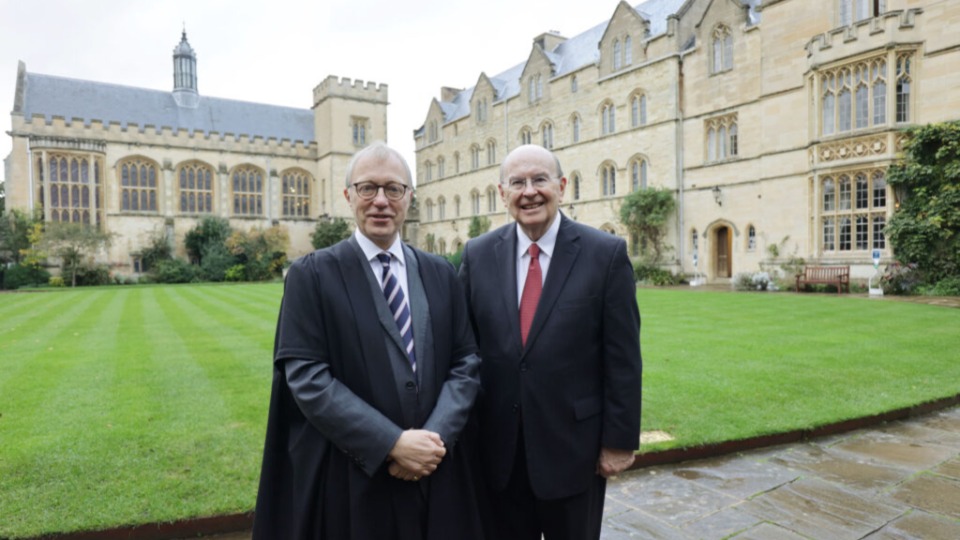
This story appears here courtesy of TheChurchNews.com. It is not for use by other media.
By Sarah Jane Weaver, Church News
OXFORD, ENGLAND — As he visited the McGowin Library, which houses Pembroke College’s Special Collections at the University of Oxford, Elder Quentin L. Cook examined a range of old books and commentaries on the laws of England.
The collection — the works of Sir William Blackstone, an 18th-century English jurist and judge — holds great significance to both the college and to Elder Cook, a member of the Quorum of the Twelve Apostles of The Church of Jesus Christ of Latter-day Saints.
Blackstone’s work built on efforts that started centuries earlier. It was here on English soil, beginning five centuries before Blackstone with the Magna Carta in 1215, that the ideas of religious freedom took root.
“One of the reasons that we are here is that we wanted to look at the influence of the laws in England, the events in England, the people in England, that have had an enormous impact on the Constitution of the United States, and particularly on religious freedom and individual freedom,” said Elder Cook, who was hosted at Oxford by the master of Pembroke College, the Right Honorable Sir Ernest Ryder.
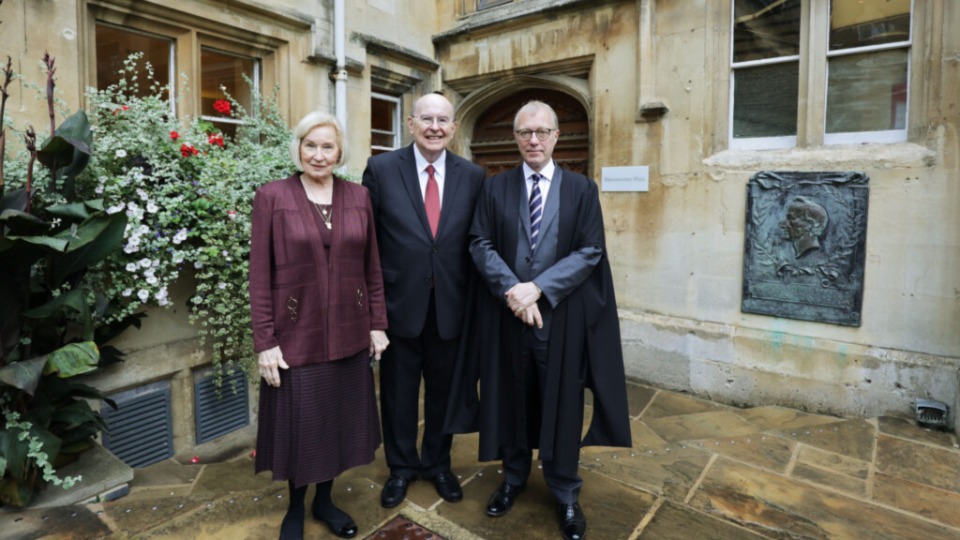
The master of Pembroke since July 2020, Sir Ernest has a legal background. He served in the United Kingdom judiciary as Senior President of Tribunals (their head of jurisdiction) and as Lord Justice of Appeal before accepting a position at Oxford.
Elder Cook — also an attorney before his call to full-time Church service — sat for a Church News interview in front of Blackstone’s portrait in the Senior Common Room at Pembroke College and spoke about “the precious precursors” to the Declaration of Independence, the U.S. Constitution and related documents. The documents, which provided for accountability to God, were inspired, Elder Cook said.
The progression of basic principles has “established religious liberty as part of essential or inalienable rights — the fundamental right of each individual to live according to his or her faith and beliefs,” he explained.
Runnymede
Elder Cook — accompanying President M. Russell Ballard, Acting President of the Quorum of the Twelve Apostles, and Elder Jeffrey R. Holland, also of the Quorum of the Twelve Apostles — traveled to England the last week of October to address members and missionaries. The trio of senior Church leaders are all former British Isles missionaries, and each spoke of England as a “spiritual home” that anchored their lives.
Elder Cook recalled he was contemplating a legal career even as he worked as a missionary.
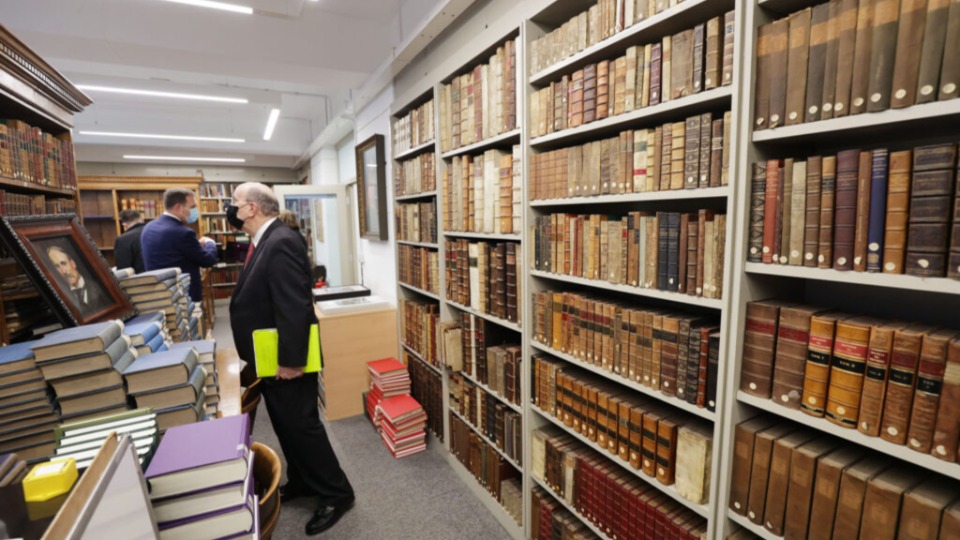
One preparation day, his mission president, Marion D. Hanks, drove him 20 miles outside of London to Runnymede, a meadow on the River Thames where the Magna Carta was drafted in 1215 by a group of barons opposing King John’s attempt to levy taxes. As a result, the Magna Carta contains clauses limiting the king’s right to exact revenues, as well as important statements relating to religious liberty and how justice was dispensed.
Clause 1, for example, declares: “First, that we have granted to God, and by this charter have confirmed for evermore, that the English Church shall be free, and shall have its rights undiminished, and its liberties unimpaired.”
Also there at Runnymede, President Hanks spoke to the young Elder Cook about the paths he might take.
“He gave me a grander vision that the law wasn’t just an occupation that would be a good profession, but it was one that fit in very well with my goals to have a family and prioritize the gospel.”
The importance of the place was also not lost on Elder Cook — both as a full-time missionary and today.
“One of the reasons I wanted to talk about Runnymede and to talk about these constitutional provisions is because they are crucial to us being able to go all over the world and be missionaries, and they have been established so that people of faith can share the precious gospel truths that they feel,” he said.
Oxford
Over 800 years ago, on June 15, 1215, King John sealed the Magna Carta at Runnymede. Of the original 13th-century documents, only 17 remain, and four of those sit in Oxford University’s Bodleian Libraries.
Oxford is also an appropriate place to speak about the U.S. Constitution and religious liberty. Pembroke sponsors the Quill Project, an effort focused on constitutions across the world. Elder Cook offered a historic address in 2019 at the university as part of the project.
During the address and in the recent Church News interview, Elder Cook spoke of religious liberty.
In approximately 1600, seizing upon Magna Carta as “the embodiment of good laws,” Sir Edward Coke produced the consolidation of the English law in written form, explained Elder Cook. His work came in the same period as Shakespeare’s writings. Coke’s “work was to law what Shakespeare’s was to literature,” he said.
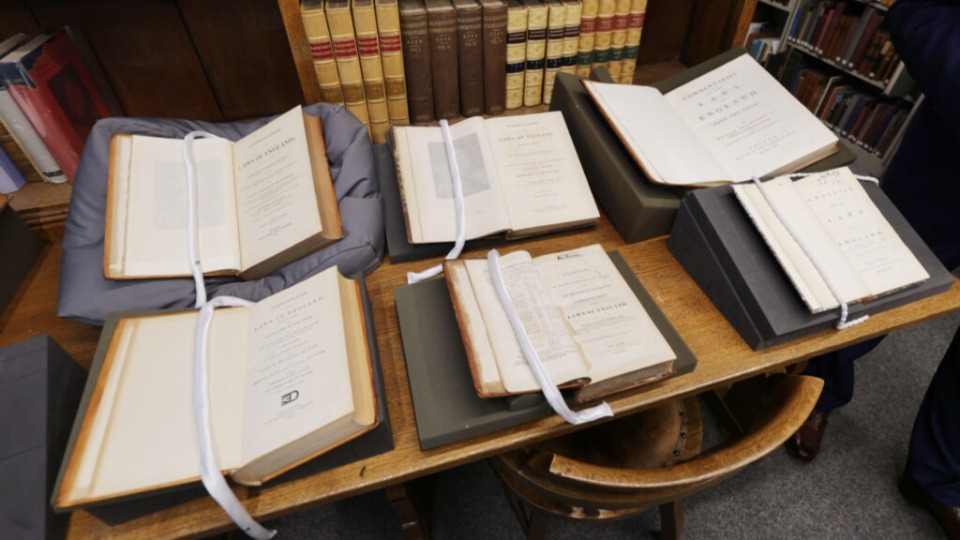
Over a century later, Blackstone’s commentaries on the laws of England were “most important” and “very precious” because “he recognized the accountability to God,” Elder Cook said. “His commentaries were exceptionally influential in the American colonies.”
Blackstone died in 1780 — four years after the Declaration of Independence recorded the seminal words, “all men are created equal, that they are endowed by their Creator with certain unalienable rights.”
“To me, the acknowledgement of God, the Creator of the universe, as the ultimate giver of essential rights is proclaimed in a magnificent fashion,” Elder Cook said.
Why It Matters
William Wilberforce, who lived in England from 1759 to 1833, is a personal hero to Elder Cook. Highly religious and instrumental in the moral transformation of society, Wilberforce dedicated his life’s work to the abolishment of slavery in his nation.
Just four years before Latter-day Saint missionaries came to England, “in the last week of Wilberforce’s life, parliament voted to abolish slavery on July 22, 1833,” Elder Cook said.
In that moral environment in England, early Latter-day Saint missionaries — including Elder Cook’s great-great-grandfather Heber C. Kimball — had considerable success; it is estimated that between 1839 and 1841, approximately 7,000 and 8,000 people joined the Church in England.
Reading from a portion of his 2019 talk at Oxford, Elder Cook explained why religious freedom matters. “We live in an age where significant portions of our moral heritage are not only not appreciated, but in many cases, misunderstood or even dismissed, almost with disdain,” he said.
As a result, protections contained in various constitutions could be eroded or undermined, he said.
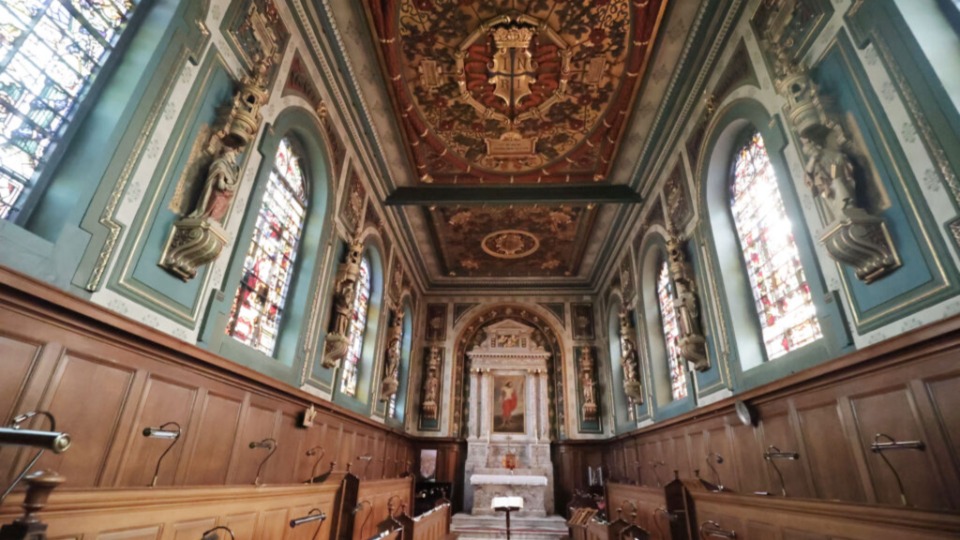
Copyright 2021 Deseret News Publishing Company